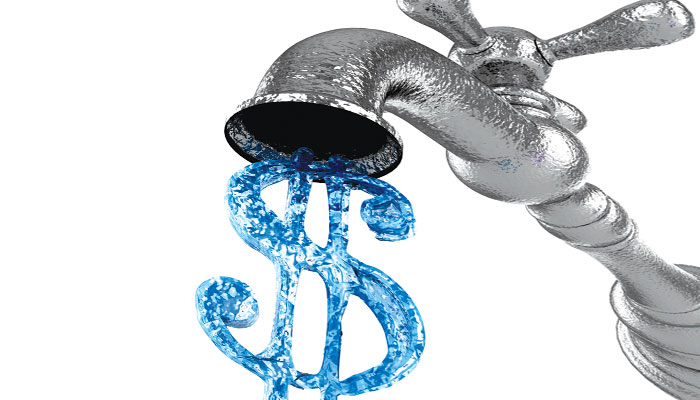Credit card payments pay a vital role in most retail energy sales and home comfort services, and there are a lot of complexities involved. Once seen as a costly way of accepting customer payments, credit cards are getting more love from energy marketers because they provide timely, guaranteed payments.
One company that strongly advocates for credit cards usage to accelerate cash flow is AVATAS Payment Solutions, a Massachusetts-based payment processing company that specializes in the retail energy industry. Oil & Energy recently reached out to Avatas Co-Founder Tracy Richmond to discuss new developments in the credit card industry.
Oil & Energy: How can a fuel marketer benefit from increasing the number of customers who use credit cards regularly to purchase fuel and services?
Tracy Richmond: This is a great question. So many marketers are still under the impression that credit cards are “expensive.” I think this is a valid thought because years ago they were expensive! That is 100 percent not the case now. Thanks to the lobbying work done by AVATAS on behalf of the heating fuels industry, home heating retailers now pay some of the lowest processing rates in the country. Because these rates average well below 2 percent, marketers should use credit cards to drastically reduce their receivables expenses and bad debt. We will discuss this in more detail later on.
O&E: Do you recommend credit card payments as a strategy for keeping receivables low? Please explain.
TR: AVATAS processes payments for over 800 energy retailers across the country. Our most profitable clients are the marketers that understand that sitting around and waiting 30 plus days on average for a paper check to arrive in the mail just doesn’t make sense anymore. The vast majority of homeowners pay all their bills via credit card – all their bills that is besides their heating fuel bill! For that they dig out the checkbook for and send in a paper check. Again, the processing fees for credit cards have become so inexpensive for our clients, it only makes sense to improve cash flow and drastically cut the days outstanding by promoting credit card payments.
O&E: Is payment by credit card so beneficial that companies should incentivize customers to choose that option? Have any of your clients taken that route?
TR: Again, I will pull from our client base to answer this question, as we have dozens of clients that do just that. Some of our clients will offer a one-time credit of around $50 for any consumer that puts a card on file. Some of our clients offer discounted rates to budget customers that pay with a credit card – for example “save 2 cents a gallon, set up auto pay via your MasterCard.” We actually have seminars on a weekly basis discussing this very topic and it’s a concept we strongly endorse.
O&E: What are the principle drawbacks for the marketer when customers pay by check?
TR: There are significant costs associated with checks, specifically the longer wait period and the risk of a bounced payment due to insufficient funds. Other payment posting expenses such as envelopes, stamps, labor time, etc. all add up. Bottom line: Checks are outdated and inefficient. Also, consumers like to get their points/rewards that come along with credit card payments. Since it doesn’t cost the marketer any more, it’s a great bonus for your customers when they pay their bill.
O&E: Have the economics of the energy industry changed (rising prices, customers struggling to pay) to make payment by credit card a more profitable option than payment by check? Please explain.
TR: Absolutely! With credit cards, customers can be placed on a regularly scheduled payment plan, which guarantees that the dealer is paid on time. Electronic payment also puts the collections obligation back on the credit card company, which saves fuel dealers the hassle of contacting customers who may have overdue bills. It gets our marketers out of the business of becoming the bank and back into the business of servicing their clients. Again, I will mention that homeowners pay the vast majority of their other bills via credit card. Their heating fuels bill is most likely one of the only bills they still pay via paper check.
O&E: Do you recommend MasterCard as the most economical choice for both heating oil and propane payments? Why? How do rates for fuel marketers vary from card to card, generally?
TR: We recommend MasterCard because of the Utility rate program, which offers the lowest transaction processing fees when compared to other branded cards. Additionally, there are other cards that also offer low processing rates, for example, Discover Card. Processing rates can vary drastically. and that is why we think working with an expert in the energy industry is critical. Many marketers think they are receiving all the benefits of the processing programs available to them but sadly, that is often not the case.
O&E: Please list the various fees and charges that the merchant might be required to pay when a customer make a credit card payment. What is the likely total cost, both best case and worst case scenario?
TR: This question is harder to answer then it might appear. That is because the rates can be all over the place. For example, did you know that processing rates on the East Coast tend to be a little less then on the West Coast? The reason for this is that there are more MasterCards issued on the East Coast and MasterCard costs less for a heating fuels retailer to process then a Visa credit card. Again, this is why it is extremely important that your readers work with a processing specialist in the energy industry! One little mistake can cost hundreds or thousands of dollars a year when you are talking about the large transactions that heating fuel retailers process.
O&E: Are fuel marketers required to maintain reserve accounts with AVATAS or other parties when they work with AVATAS? What is a reserve account and why are they required?
TR: We do not require our marketers maintain a reserve. Actually, it’s almost the opposite. When a transaction is processed, our clients receive the funds the very next day. It’s a tremendous cash flow advantage. In general, if a company is in good financial standing, there should be no reason for a company to hold a reserve.
O&E: Are there steps that fuel marketers can take to reduce the ultimate cost of using credit cards? Please describe.
TR: Again, back to question number one, many marketers are still under the incorrect assumption that credit card costs are expensive. Hopefully this article has helped them understand that is just not the case. Some of the things they can do have been mentioned above but one of my favorites is to have an internal MasterCard promotion. Create an incentive for your customer service reps to convert payments to MasterCard. Then give a small reward to the representative that converts the most. Your employees get to have a little fun, and you will save money on every payment that is changed.
O&E: AVATAS is now helping clients accept mobile payments by customers. Could you please explain that program and its benefits?
TR: Any payment method that offers customers more convenience increases the likelihood that they will take advantage of it. Mobile payments aren’t just a passing trend, which is why it’s important to evolve with technology. Also, accepting payments at the time of a service call is a key element for improving cash flow. Why not ask for payment at the moment your clients are happiest with you? You just provided them heat on a cold winter night – I bet they would have no problem handing over a credit card. Why wait till a few weeks later when they don’t remember how cold they were before you came? It’s a win-win. You receive your payment and the homeowner is happy to pay. Mobile payments make this an easy solution.
O&E: PCI Compliance is required for marketers who accept credit cards. What is PCI, and what does compliance entail for a dealer in terms of cost and management? What do they have to do?
TR: PCI compliance standards require any business that accepts credit card payments to ensure that sensitive cardholder data is protected. We personally offer a secure, PCI compliant solution that encrypts confidential information, at no added cost to our clients. This offers peace of mind in that dealers are not burdened with the added pressure of worrying about data security.
O&E: What are the penalties for failure to comply with PCI standards?
TR: The penalties for failure to comply with PCI standards can be costly. There is a wide range of noncompliance fines, depending on the level of the merchant and whether or not the noncompliance resulted in a data breach. On top of the financial loss, noncompliant dealers can also face reputational damage and mistrust from customers. Dealers should confirm that they are working with a secure, PCI compliant processor in order to avoid any of these issues down the road.





